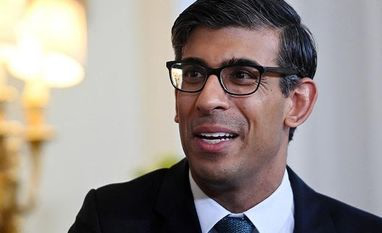That sparked the revival of old Brexit debates in WhatsApp group chats of Tory MPs over the weekend, with the role of the European Court of Justice in Northern Ireland at the forefront of their minds.
Though Sunak has secured 90% of his demands in the talks with the EU, he’s been unable to convince the bloc that the ECJ should have no role in Northern Ireland, people close to the UK side said. The EU, for its part, has assured member states that the integrity of the single market and the ECJ will be respected.
Former party leader Iain Duncan Smith wrote in the Telegraph on Saturday that “so long as EU law and regulations apply to Northern Ireland, leaving the province outside the UK’s own single market and the remit of exclusively UK law, the DUP cannot go back into the Assembly.”
)











